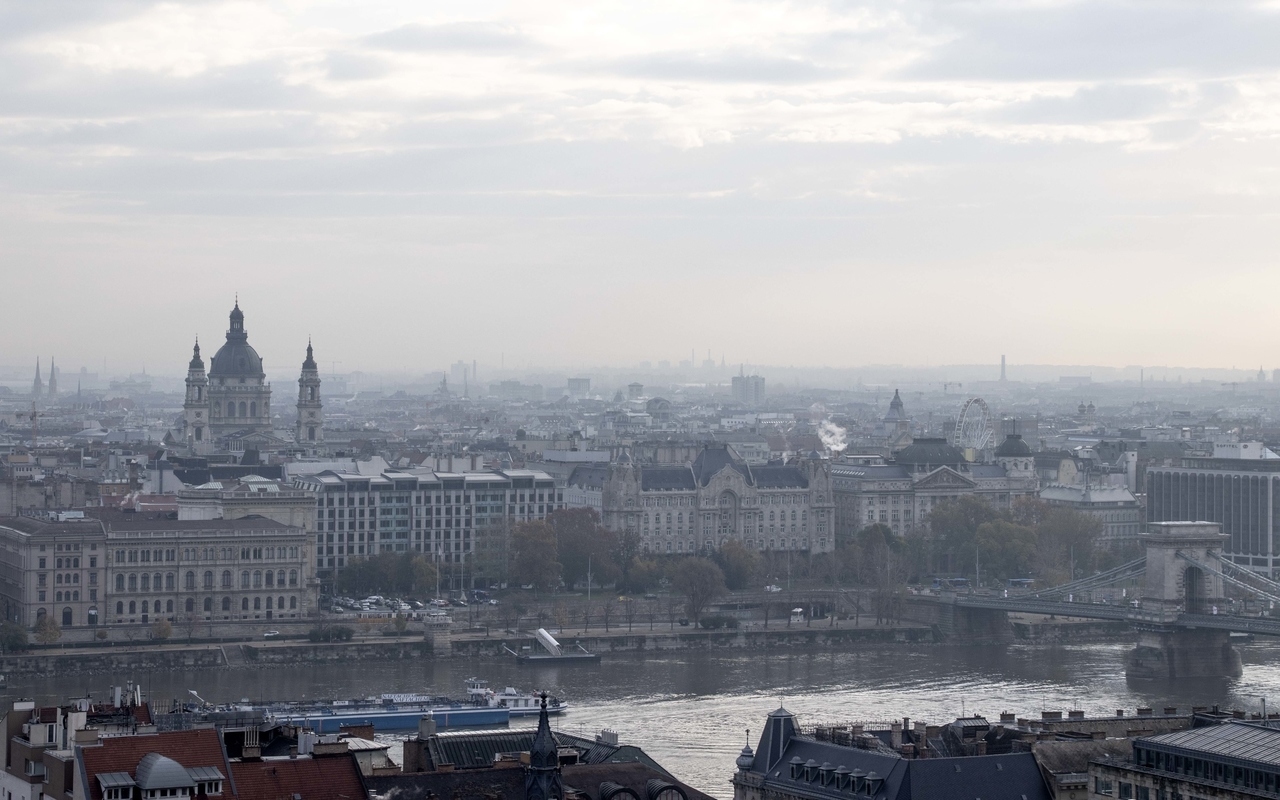Do you know what claims much more lives in Hungary than the coronavirus?
According to experts, 13 thousand people die in Hungary because of the polluted air, which is as harmful as smoking. Hungary is currently fourth on the list of those countries that have the worst air quality in the European Union.
The Climate Policy Institute of the Mathias Corvinus Collegium (MCC) shared its research regarding the issue yesterday, which says that, lately, the government has implemented many measures to decrease air pollution in the country. György Kerekes, the director of the institute, added that the government tightened the energy performance standards for the newly-built houses and flats from 2021 which
can help a lot in reducing the amount of energy needed for heating.
For example, they banned people from burning fallen leaves and started to support programmes aiming at the development of heating systems and improving the energy efficiency of the buildings, Napi reported.
Mr Kerekes stated that people can also do a lot to improve air quality. He reminded that Hungary is the fourth on the list of those countries in the European Union that have the worst air quality. He said that the outdated heating systems cause a lot of problems during winters. However,
not only the devices and their technologies are old, but the fuel people burn in them are also low quality (rags, rubbish, plastics).
Air quality could be improved already in the short run by the modernisation of the heating systems and using high-quality fuel like briquet or pellets. In the long run, on the other hand, renewable energy produced by households as well as heating system development could be the solution. The quantity of particulate matter (PM) could be reduced if the government provided dry firewood for everybody in need.
- Danger going outside in Hungarian cities because of air pollution
- Shocking! Every fifth to sixth death can be attributed to environmental pollution in Hungary
- The Hungarian president would like to reduce water pollution
Interestingly, based on the statistics,
80 pc of the PM in Hungary comes from Poland and Romania.
Therefore, Hungarian efforts are not enough, and regional cooperation is inevitable to reduce their PM emission.
According to mcc.hu, the Mathias Corvinus Collegium and the Századvég Foundation established the Climate Policy Institute. It has sprung from the founders’ understanding that climate change and preparing for its effects will be significant social and economic policy issues in the coming years. Adaptation to climate change requires a new strategy and the coordination of hitherto distant disciplines that the professional workshop wishes to undertake.
The studies of the Climate Policy Institute focus on five areas:
energy, nature conservation, agriculture, the protection of inanimate environmental elements (water, air, soil), and urbanism.
This professional workshop is intended to accommodate a green approach and to contribute to the training of responsibly minded and acting citizens necessary for successful environment protection and nature conservation. The director of the Institute is Dr György Kerekes, a lawyer specialised in environmental law.
Source: napi.hu
please make a donation here
Hot news
What happened today in Hungary – 26 July, 2024
Drama: number of births in a 20-year low in Hungary
Yay or nay? – 6 odd Hungarian delicacies that make our skin crawl
Budapest tourism “exploded” this past weekend
Container transport in Budapest may stop: How will this affect Hungarian economy?
Minister: Hungary will protect its territory by every means possible





5 Comments
Covid 19 and Pollution are both total Bovine excrement being pushed by the media to frighten the public. I would venture to say that actually the number 1 cause of death in Hungary is alcoholism and number 2 is tobacco usage. This article just like almost all on this news (propaganda) website are just fear porn to push the leftist agenda. What ever happened to journalist who actually reported news and had no agenda ? Todays journalist are not journalist they are in fact presstitutes. Faces trying to have the public believe they are reporting news when in fact they are slinging propaganda. Have they no shame?
Biomass (pellets, briquettes and wood) burning is not the answer. Even if the most modern system is used, biomass produces significantly more pollutants than gas, particularly CO2. There is a mountain of research and documentation available on thus subject online for those interested. As the drive to reduce CO2 emissions gathers pace, some countries have implemented or are implementing bans on the use of biomass AND gas heating systems in new builds, with only heat pumps and hydrogen burning systems being acceptable.
The Polish government is addicted to their numerous filthy coal-fired power stations because they want to keep the Polish mining industry happy. Poland has a total of around 24 of these relics, belching out pollution that does not just poison the atmosphere in Poland but also in neighbouring countries.
Jack Russell – Thetruthhurts and the Shoreditch Pub Bouncer of Female Altercations from past days – Decker Paulus, – all have valid points, in comments presented.
Jack Russell comment on journalists – totally correct.
Journalist today, just gather information, then write pieces that muchly are fictional, that contain unacceptable amounts of propaganda.
Quality old school journalism – thing of the past.
The American “pantomime” – the lack of “old school” journalistic talent and skill, sticks out like those things dogs have, at birth.
Alistair Cooke – Alastair Cooke’s bones were reported stolen in 2005, surgically removed from his body before cremation and thought to be destined for the illicit trade in implants. Since you commented upon journalistic standards and spookily share the same name (albeit with a small spelling difference), this is possibly from whence you came.